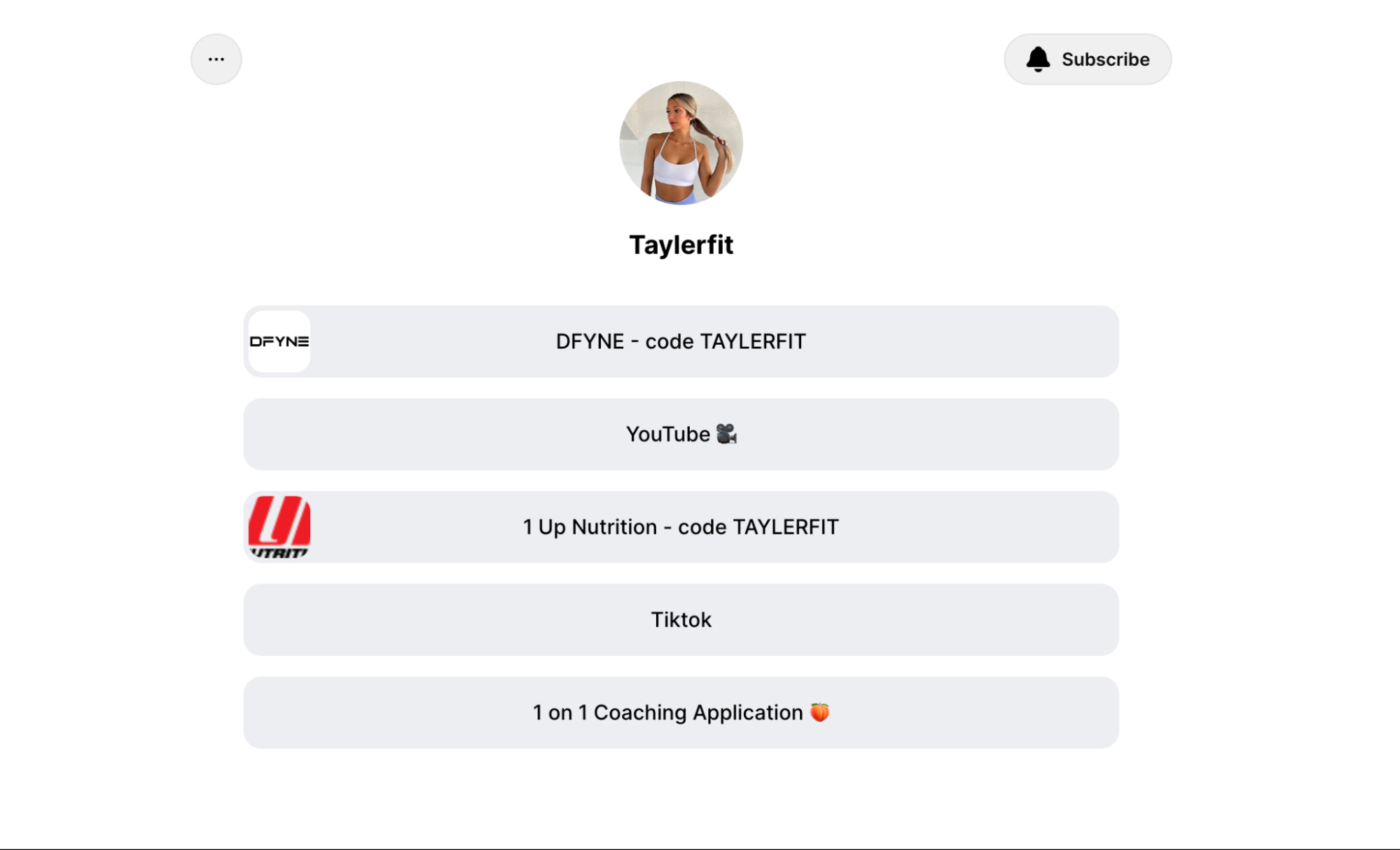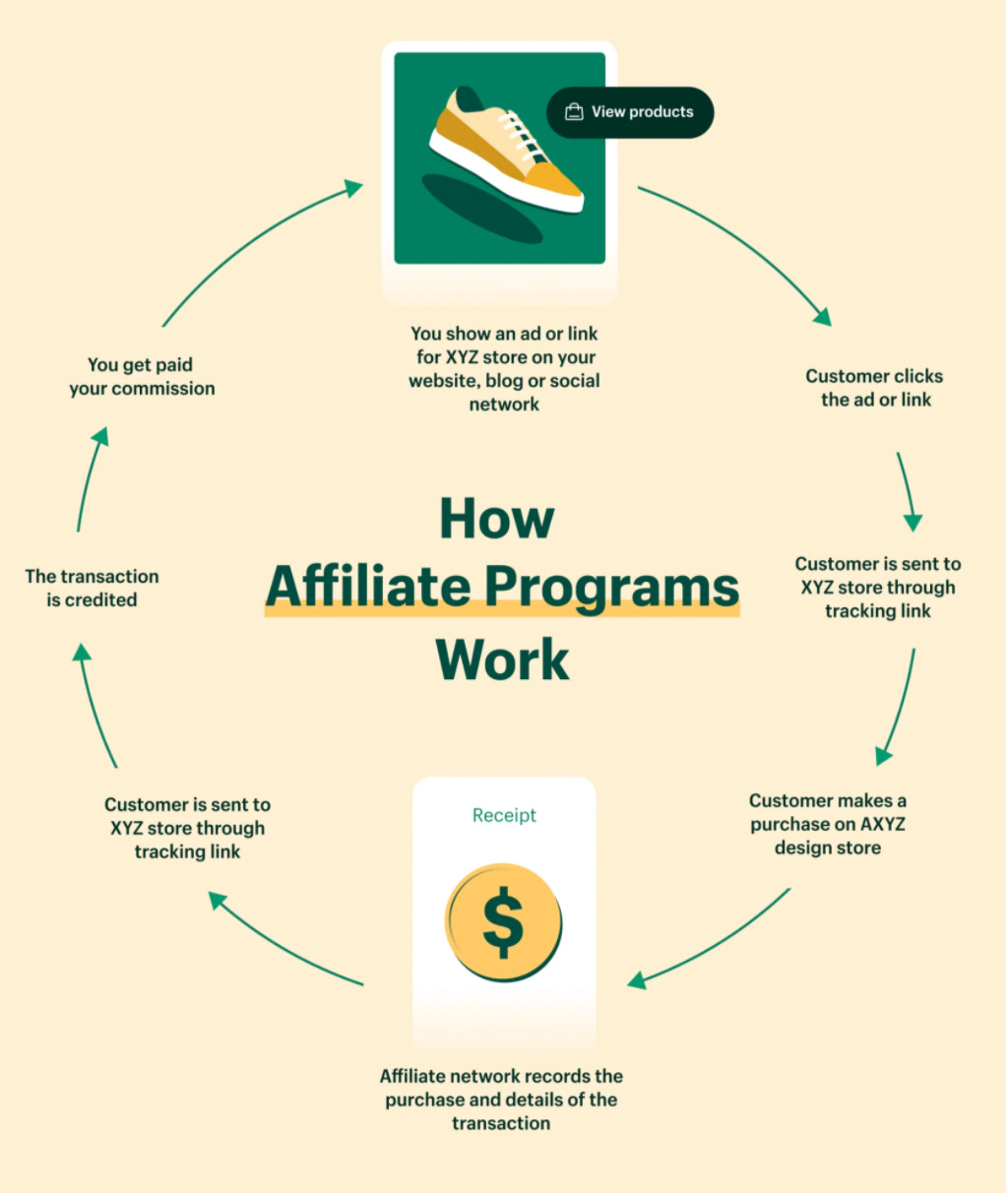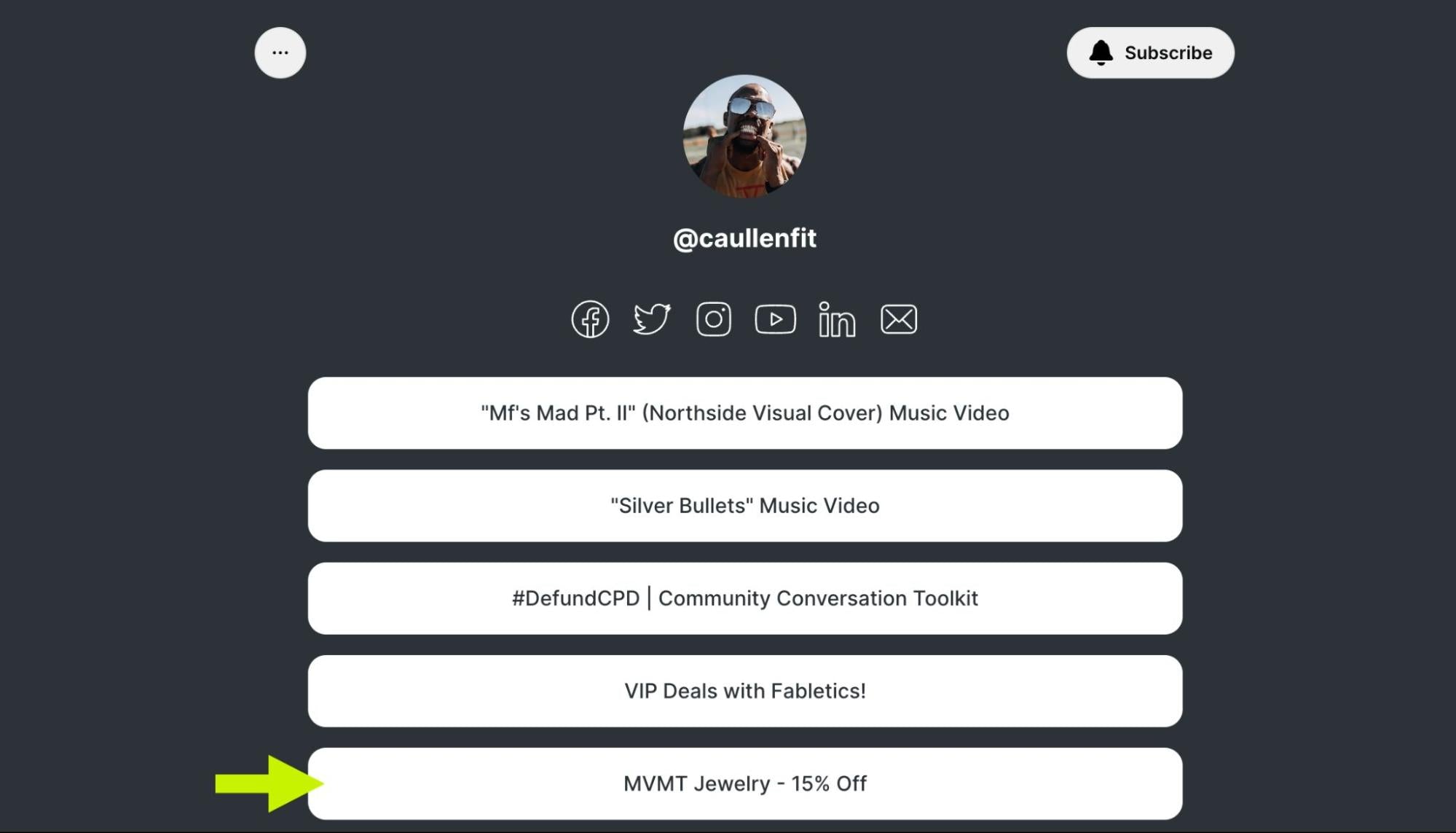Are you ready to dive into the lucrative world of affiliate marketing? With the ecommerce industry expected to reach a staggering $6.3 trillion globally in 2023, there has never been a better time to get involved. As a creator or ecommerce brand, you have the opportunity to tap into this multibillion-dollar industry and earn passive income over time. The concept is simple: recommend products or services and earn a commission from resulting sales. To get started, all you need to do is choose a niche, select a platform, find relevant affiliate programs, create valuable content, build an audience, and make sure to follow FTC regulations. It’s an exciting journey ahead as you unleash your potential and forge your path in the world of affiliate marketing.
Choosing a Niche

This image is property of cdn.shopify.com.
What is a niche?
A niche refers to a specific segment or area of interest within a larger market. In affiliate marketing, selecting a niche involves choosing a topic or subject that aligns with your interests, expertise, and target audience. It’s important to choose a niche that you are passionate about and have sufficient knowledge in, as this will make it easier for you to create valuable content and engage with your audience effectively.
Identifying your interests and expertise
To choose the right niche, start by identifying your interests and areas of expertise. Think about the topics that you genuinely enjoy and have knowledge about. This could be anything from hobbies, personal skills, professional experience, or even a specific lifestyle. By focusing on your interests and expertise, you’ll be able to create content that resonates with your audience and establish yourself as a trusted authority in your niche.
Researching market demand
Once you have identified your interests and expertise, it’s important to research the market demand for your chosen niche. Look for keywords and trends related to your niche using tools like Google Trends or keyword research tools. This will give you insights into the popularity and demand for your niche. You want to choose a niche that has a good balance between being specific enough to target a niche audience and having enough demand to generate potential sales.
Assessing competition
While it’s important to choose a niche with market demand, it’s also crucial to assess the level of competition within that niche. High competition can make it harder for you to stand out and attract an audience. However, a completely untapped niche might indicate low demand. Strike a balance by choosing a niche with moderate competition, where there is room for you to establish your presence and differentiate yourself from others. Additionally, analyze your competitors’ content, strategies, and audience engagement to gain insights and inspiration for your own affiliate marketing approach.
Selecting a Platform
Understanding different platforms
There are various platforms available for affiliate marketers to promote products and earn commissions. These platforms can include websites, blogs, social media platforms, email marketing, and more. Understanding the different platforms and their capabilities is crucial in selecting the right one for your affiliate marketing business. Each platform has its own advantages and specific target audience, so it’s important to choose the one that aligns with your niche and allows you to effectively reach and engage with your audience.
Comparison of popular affiliate marketing platforms
When choosing a platform, it’s helpful to compare the features and benefits of different affiliate marketing platforms. Some popular platforms include Amazon Associates, ShareASale, ClickBank, and CJ Affiliate. These platforms offer a wide range of products and services across various niches, making it easier for you to find relevant affiliate programs. Consider factors such as commission rates, payment options, tracking capabilities, and support provided by the platform when making your decision.
Factors to consider when choosing a platform
Several factors should be taken into consideration when selecting an affiliate marketing platform. These include the platform’s reputation and credibility, the payout structure and commission rates, the availability of products or services relevant to your niche, the ease of use and navigation of the platform’s interface, and the level of support and resources provided to affiliates. Additionally, consider whether the platform provides tools for tracking and analyzing performance to help you optimize your campaigns.
Setting up your affiliate marketing account
Once you have chosen a platform, setting up your affiliate marketing account is the next step. Start by registering as an affiliate on the platform’s website and providing the necessary information. This may include personal details, website or blog information, and payment details. Some platforms may require you to meet specific criteria, such as having a certain number of followers or website traffic, before approving your application. Once approved, you can start exploring and joining relevant affiliate programs within your chosen platform.
Finding Relevant Affiliate Programs
Understanding affiliate programs
Affiliate programs are partnerships between businesses or brands and affiliate marketers. These programs allow affiliate marketers to promote products or services and earn a commission on resulting sales or actions. Affiliate programs provide unique tracking links or codes that track the referrals made by affiliate marketers, ensuring that they are properly credited for their efforts. It’s important to understand the structure and terms of affiliate programs to choose the best ones for your niche.
Different types of affiliate programs
There are various types of affiliate programs available, each with its own commission structure and requirements. Pay-per-sale programs offer a commission for each sale made through the affiliate’s referral link. Pay-per-click programs provide a commission for each click generated, regardless of whether a sale is made. Pay-per-lead programs reward affiliates for generating leads or filling out forms. Determine the type of program that best aligns with your niche and audience engagement to maximize your earnings potential.

This image is property of cdn.shopify.com.
Identifying reputable affiliate networks
Affiliate networks act as intermediaries between affiliate marketers and brands, providing a platform for finding and joining affiliate programs. It’s important to identify reputable affiliate networks that have a wide range of affiliate programs and a good track record of on-time payments and fair commission structures. Some popular affiliate networks include ShareASale, CJ Affiliate, and Rakuten Advertising. Research and read reviews about different affiliate networks to ensure their credibility and reliability.
Searching for affiliate programs in your niche
Once you have identified reputable affiliate networks, it’s time to search for relevant affiliate programs within your niche. Most affiliate networks offer search functionalities that allow you to filter programs based on category, commission rates, and other criteria. Take the time to review and compare different programs to find those that align with your niche, have products or services that you believe in and would recommend to your audience. Look for programs that provide resources, marketing materials, and support to help you succeed in promoting their products.
Creating Valuable Content
Importance of creating valuable content
Creating valuable content is essential in affiliate marketing as it helps build trust, establishes your expertise, and engages your audience. High-quality content that provides value to your audience will attract more visitors, increase your chances of conversions, and encourage repeat visits. Valuable content can take various forms such as blog posts, videos, podcasts, social media posts, product reviews, and comparison guides. Focus on delivering informative, insightful, and actionable content that meets the needs and interests of your audience.
Choosing the right content format
When creating content, it’s important to choose the right format that aligns with your niche and target audience. Consider the preferences and habits of your audience. For example, if your audience enjoys reading, written content in the form of blog posts or articles may be the most suitable. If your audience prefers visual content, consider creating videos or infographics. Experiment with different formats and track the engagement and feedback to determine which format resonates the most with your audience.
Researching and understanding your audience
To create valuable content, it’s crucial to research and understand your target audience. Conduct market research to gain insights into the demographics, interests, and pain points of your audience. This can be done through surveys, social media analytics, keyword research, or engaging with your audience directly through comments or emails. Use this information to tailor your content to their needs and interests, ensuring that it provides solutions, answers questions, or offers valuable information.

This image is property of cdn.shopify.com.
Crafting compelling product/service reviews
Product or service reviews play a crucial role in affiliate marketing as they help your audience make informed purchasing decisions. When crafting reviews, be honest, unbiased, and transparent about your experiences and opinions. Provide detailed information about the features, benefits, and drawbacks of the product or service. Include personal anecdotes or testimonials to make your reviews more relatable. Use persuasive language and include call-to-actions to encourage your audience to take action and make a purchase through your affiliate links.
Building an Audience
Developing a content marketing strategy
A well-defined content marketing strategy is essential for building an audience in affiliate marketing. Start by setting clear goals and objectives for your content. Determine the topics, formats, and frequency of content that best align with your niche and target audience. Create an editorial calendar to plan and organize your content creation process. Consider incorporating SEO strategies to improve the visibility and discoverability of your content. Finally, consistently deliver valuable content, engage with your audience, and adapt your strategy based on feedback and analytics.
Building a website or blog
Having a website or blog is a powerful tool for building your affiliate marketing business and attracting an audience. Your website serves as a central hub for your content, affiliate links, and engaging with your audience. Choose a domain name that is relevant to your niche and easy to remember. Design an appealing and user-friendly website layout that reflects your brand and provides a seamless user experience. Keep your website regularly updated with fresh content, and optimize it for search engines to increase organic traffic.
Utilizing social media platforms
Social media platforms offer great opportunities for reaching and engaging with your target audience. Identify the platforms where your audience is most active and create a strong presence there. Share your content, promote relevant products or services, and engage with your audience through comments, likes, and shares. Consider running targeted ad campaigns to expand your reach and attract more followers or subscribers. Utilize social media analytics tools to track the performance of your posts and refine your social media strategy accordingly.
Engaging with your audience
Building an engaged audience is crucial in affiliate marketing as it can lead to increased conversions and loyal followers. Actively engage with your audience by responding to comments, messages, and emails promptly. Encourage discussions, ask for feedback, and address any concerns or queries. Provide value beyond affiliate promotions by sharing helpful tips, advice, or industry insights. Foster a sense of community by encouraging audience interaction, such as through contests, giveaways, or user-generated content. Building a genuine connection with your audience will build trust and loyalty.
Following FTC Regulations

This image is property of cdn.shopify.com.
Understanding FTC guidelines for affiliate marketers
The Federal Trade Commission (FTC) has guidelines and regulations in place to ensure transparency and honesty in affiliate marketing. These guidelines are designed to protect consumers and prevent deceptive advertising practices. Familiarize yourself with the FTC guidelines specific to affiliate marketing, such as disclosing affiliate relationships and providing truthful and accurate information in your promotions. Non-compliance with these guidelines can result in penalties and damage to your reputation.
Disclosing affiliate partnerships
One of the most important FTC guidelines for affiliate marketing is the disclosure of affiliate partnerships. Whenever you promote a product or service through affiliate links, it’s important to clearly disclose that you may earn a commission from qualifying purchases. Disclosures should be prominently placed and easily noticeable, such as at the beginning of a blog post, within video descriptions, or on social media posts. Avoiding or burying disclosures can lead to misleading and deceptive marketing practices.
Ensuring transparency in product reviews
When creating product reviews, it’s important to maintain transparency and provide accurate and honest information to your audience. Clearly state whether you have personally used the product or service and any compensation received for the review. Highlight both the benefits and drawbacks of the product to provide an unbiased perspective. Avoid making false claims or exaggerating the product’s capabilities. Honesty and transparency will build trust with your audience and enhance your credibility as an affiliate marketer.
Avoiding deceptive marketing practices
FTC guidelines prohibit deceptive marketing practices, such as false advertising, misleading claims, or fake endorsements. Be cautious of using aggressive or manipulative tactics to drive sales, as this can damage your reputation and result in legal consequences. Avoid making unsupported claims or promising unrealistic results. Disclose any limitations or conditions associated with the products or services you promote. Focus on providing accurate information, valuable content, and genuine recommendations to build trust and foster long-term relationships with your audience.
Analyzing Performance and Making Adjustments
Setting up tracking and analytics tools
Tracking and analytics tools are essential for measuring the performance of your affiliate marketing campaigns. Set up tools like Google Analytics, affiliate network tracking tools, or third-party tracking software to monitor key metrics such as website traffic, click-through rates, conversion rates, and revenue generated. These tools will provide valuable insights into the effectiveness of your campaigns and help you make data-driven decisions to optimize your strategies.

This image is property of cdn.shopify.com.
Monitoring affiliate links and conversions
Regularly monitor the performance of your affiliate links to ensure they are functioning correctly and tracking conversions accurately. Broken or malfunctioning links can lead to lost commissions and frustrated readers. Use link tracking tools to monitor link clicks, conversions, and sales to determine which links or campaigns are driving the most traffic and generating the highest conversions. This data will help you identify areas for improvement or areas where you can focus your efforts to increase your revenue.
Testing different strategies and optimizing campaigns
To improve the performance of your affiliate marketing campaigns, it’s important to test different strategies and optimize your efforts based on the data collected. Conduct A/B tests to compare different versions of your content or marketing strategies and determine which ones yield better results. Experiment with different promotional tactics, such as using different call-to-actions, including additional incentives, or changing the placement of your affiliate links. Continuously analyze the data and make adjustments to refine and improve your campaigns.
Making data-driven decisions
Data-driven decision-making is crucial in affiliate marketing as it allows you to optimize your strategies and focus your efforts on what works best. Regularly analyze the data collected from tracking and analytics tools to identify patterns, trends, and areas of improvement. Use this data to make informed decisions about your content creation, marketing tactics, audience targeting, and product selection. By relying on data rather than assumptions or guesswork, you can continuously refine your approach and achieve better results over time.
Scaling Your Affiliate Marketing Business
Expanding your niche or targeting multiple niches
Once you have established your presence and achieved success in your initial niche, consider expanding your affiliate marketing business by either expanding your current niche or targeting multiple niches. Expanding your niche allows you to capture a wider audience within a related area while leveraging your existing expertise. Alternatively, targeting multiple niches can provide diversification and increase your revenue streams. Conduct thorough research and ensure that any expansion aligns with your brand and resources.
Building a team or outsourcing tasks
As your affiliate marketing business grows, it may become necessary to build a team or outsource certain tasks to scale efficiently. Consider hiring freelancers or virtual assistants to help with content creation, social media management, or website maintenance. This allows you to focus on strategy, partnerships, and scaling your business while delegating routine or time-consuming tasks. Ensure that you provide clear instructions and effective communication to maintain consistent quality and achieve your business goals.
Exploring additional affiliate programs or products
Expanding your affiliate marketing business can also involve exploring additional affiliate programs or products within your niche or related niches. Joining new affiliate programs or partnering with new brands can help you diversify your revenue streams and offer your audience a wider range of products or services. Research and assess these programs and products to ensure that they align with your values, niche, and meet the needs and interests of your audience.
Maximizing revenue through upselling and cross-selling
Another way to scale your affiliate marketing business is to focus on maximizing revenue from existing customers through upselling and cross-selling techniques. Upselling involves encouraging customers to upgrade or purchase higher-priced products with better features or additional benefits. Cross-selling, on the other hand, involves recommending related or complementary products that enhance the customer’s overall experience. By leveraging your existing customer base, you can increase your average order value and generate more revenue without acquiring new customers.
Staying Up to Date with Industry Trends and Strategies
Continuous learning and professional development
To succeed in affiliate marketing, it’s important to stay up to date with industry trends, strategies, and best practices. Continuous learning and professional development will help you adapt to changes in the market and leverage new opportunities. Attend industry conferences, webinars, or workshops. Join affiliate marketing communities or forums to network and learn from experienced marketers. Stay informed about industry news and subscribe to relevant blogs or newsletters to stay in the loop.
Following industry influencers and experts
Following industry influencers and experts is a great way to stay informed about the latest trends, strategies, and insights in affiliate marketing. Identify reputable and knowledgeable individuals in the field and follow them on social media, read their blogs, or subscribe to their newsletters. Engage with their content, ask questions, and participate in discussions. This will provide you with valuable insights, tips, and inspiration for your own affiliate marketing business.
Adapting to changes in consumer behavior
Consumer behavior is constantly evolving, influenced by technological advancements, cultural shifts, and changing market trends. As an affiliate marketer, it’s important to stay adaptable and responsive to these changes. Monitor shifts in consumer behavior by analyzing your website analytics, tracking audience engagement, and conducting market research. Stay updated with emerging technologies, platforms, and content formats to ensure that you effectively reach and engage with your target audience.
Discovering new affiliate marketing methods
The affiliate marketing landscape is continually evolving, with new methods and approaches emerging. Stay open to exploring new affiliate marketing methods that might align with your niche and offer opportunities for growth. For example, you could consider influencer marketing, where you partner with social media influencers or content creators to promote products. Another emerging method is affiliate email marketing, where you build an email list and promote affiliate products through targeted email campaigns. Continuously experiment and test new methods to discover what works best for your niche and audience.
Avoiding Common Mistakes in Affiliate Marketing
Choosing the wrong niche or product
Choosing the wrong niche or product can significantly impact the success of your affiliate marketing business. It’s important to thoroughly research and evaluate the demand, competition, and revenue potential of your chosen niche. Ensure that the products or services you promote are of high quality, relevant to your audience, and align with your values. Avoid focusing solely on high commission rates or trendy products without considering their long-term viability or suitability for your niche.
Over-promoting or being too sales-oriented
One common mistake in affiliate marketing is over-promoting or being too sales-oriented. While promoting products or services is the core of affiliate marketing, it’s important to strike a balance and avoid coming across as overly pushy or spammy. Focus on providing valuable content that educates, informs, or entertains your audience. Build trust and credibility by being authentic and genuine in your recommendations. Avoid bombarding your audience with constant sales pitches, as this can lead to disengagement and loss of trust.
Neglecting audience engagement and support
Building and maintaining a loyal audience requires ongoing engagement and support. Neglecting audience engagement can lead to a decline in website traffic, lack of conversions, and missed opportunities. Regularly respond to comments, messages, and emails from your audience. Encourage feedback and interaction through surveys, polls, or Q&A sessions. Address any concerns or issues promptly and provide reliable customer support. Prioritizing audience engagement will foster a strong community and strengthen the relationship between you and your audience.
Violating affiliate program terms and conditions
It’s crucial to familiarize yourself with the terms and conditions of affiliate programs you join and adhere to them to avoid violating any rules. Violations can result in termination of your affiliate account, loss of commissions, and damage to your reputation. Pay attention to guidelines on promotional methods, restrictions on traffic sources, prohibited content, and cookie duration. Regularly review the terms and conditions of affiliate programs to stay updated on any changes or updates that may affect your marketing strategies.
Source: https://www.shopify.com/ca/blog/affiliate-marketing-for-beginners




